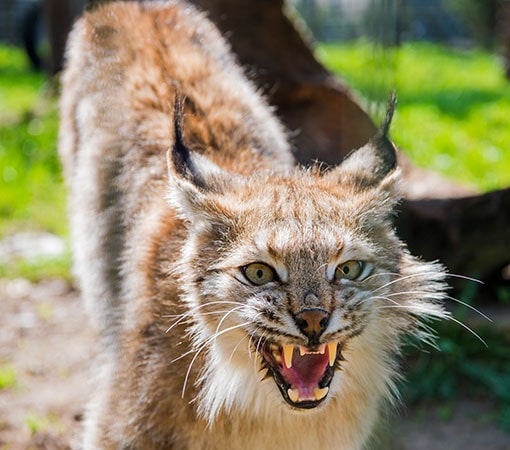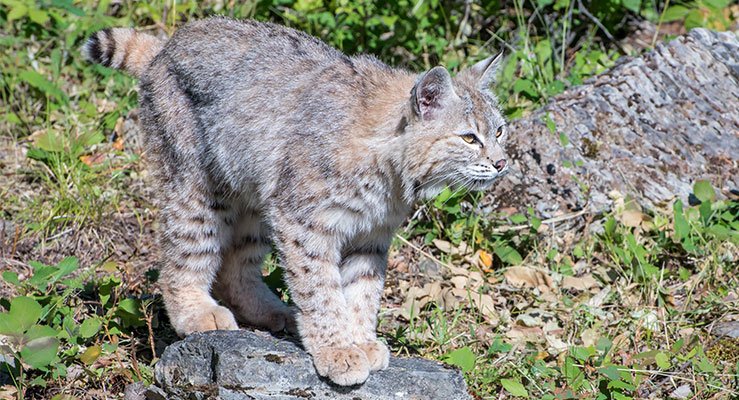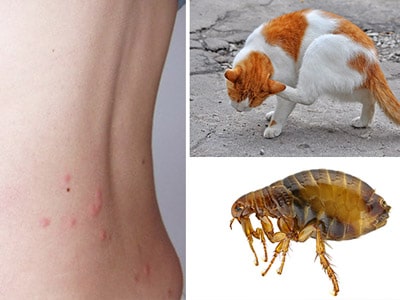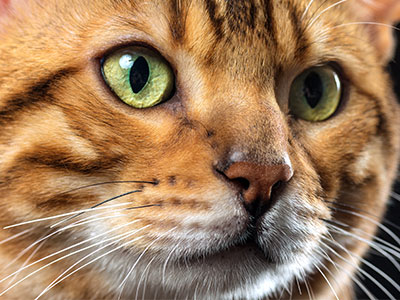Are you interested in finding out how are bobcats as pets? Read this article to find out everything about whether these felines can be good family pets or not.
Bobcats (scientifically known as Lynx rufus) are beautiful animals that are natives of North America. It may be referred to as the Red Lynx and has been known to adapt to many different environments from deserts to swamps. They have even lived in forests and urban areas. But does that make it ok for a bobcat to be a pet, and more importantly, is it a good idea to keep these wild animals as pets? Let's see the pros and cons.
| Common Name | Scientific Name | Avg. Lifespan | Diet |
|---|---|---|---|
| Bobcat | Lynx rufus | 10-13 years | Carnivorous |
Can Bobcats Be Good Pets?
While many are inclined to say no, a bobcat can make a great pet if the right person is its owner. It takes a special person to raise a bobcat in the proper manner. These animals are high-maintenance, and should not have the same expectations as a house cat.
A bobcat owner must be willing to have the best interest of the exotic animal. He will also have to learn the feline's behavior as this can be way different than that of a domestic cat.
A good owner should learn to make a distinction between when the animal is about to get aggressive, when it wants to get outside for a walk, when it wants to play, demands food, and so on. The bobcat carer will also need to realize that, potentially, there are some behavior issues that may come up, and the home may need to be adjusted in order to assist with various things to prevent this behavior.
Bobcat's Looks
Bobcats are not extremely large felines, but they normally reach approximately double the size of an average domestic cat. They are between 30 and 50 inches long and will weigh 13 to 30 pounds. Bobcats that are found in the North tend to be bigger than those who live in the South.
A bobcat has a coat that is made to camouflage them from their predators. This enables them to survive in various environments. The coats are typically orange-brown, yellow-brown, grayish-brown, or reddish-brown with some dark markings. In the colder months, bobcat’s fur will change to a silverish color so they can blend in with the snow.
Bobcat Diet
If you have a pet bobcat, you just can not feed it anything you want. If for example, you find a very young bobcat offspring abandoned somewhere, he will need to be nursed until the age he is able to eat solid food. You can do this with warm milk that has extra vitamins and minerals added to it. The feline should drink milk for 8-12 weeks.
At around six weeks of age, a bobcat canned kitten meat can be added to the milk. Slowly increase this amount as the kitten grows.
In their natural habitats, bobcats are solitary animals. The kittens will live with their mother between 9 and 12 months. After this period, their ways will split and the female will give birth to new cubs.
The natural diet of bobcats include squirrels, rats, and other small rodents. They will also eat several species of small reptiles, amphibians, and insects. As pets, bobcats can eat turkey and raw chicken meat. Some bobcat owners recommend stimulating wildlife conditions and only feeding your cat every other day with a good amount of meal.
Some bobcats will eat canned cat food. If you choose this diet approach, you will need to be sure to supplement it with some raw meat. Depending on the quality of the meat provided, you should also include vitamins in the meals of your bobcat.
Bobcat Temperament
When most people think of a bobcat, they think of a wild cat that is aggressive, wild, and fierce. However, bobcats are actually shy animals and will avoid people in the wild.
Pet bobcats can be very affectionate if they are raised from an early age by a loving family. They have a lot of things in common with household cats. They are curious and playful animals and if you provide a home that is well suited for them, they can have the best temperament.

Due to their much stronger natural predatory instinct than domestic cats and their larger size, bobcats can also be unpredictable and dangerous. From the most delicate animal, a bobcat can become a dangerous predator in a blink of an eye. Even though they might seem the most peaceful animals, these felines should never be left unsupervised around young children, and other small house pets.
It is not uncommon for wild bobcats to attack even small dogs. A story posted by CBSLocal in 2017, describes how wild bobcats killed two beloved family pets of a family.
Even if not out of aggressive behavior, a bobcat can scratch you or hurt with its sharp claws and teeth even when it's just playing.
Requirements & Space
You will want to have ample room if you decide to own bobcats. Indoors and outdoors, you will want to have space in both areas. Some owners find that a doggie door works great for this. You will want to be certain that whatever area your bobcat is in outside, it is caged in. It must be extremely durable in order for the bobcat to not be able to escape. On the chances that this exotic pet would escape, the chances of it coming back are slim.
Outdoors, you will want to provide a safe spot for them to use the restroom. Some bobcats have less than desirable bathroom habits, so if they do not feel safe, they may start going to your house.
Multi-level ramps and places for your bobcat to perch should be included in both indoor and outdoor areas. When planning for your pet, think like they would in the wild. They need places to climb, run, and hide. Also, be sure to add in new things to keep your beloved pet from being bored.
Is It Legal To Keep Bobcats As Pets?
First of all, before even thinking to keep a bobcat as a pet, you need to know the legal point of view of this.
Bobcats are considered wild animals and keeping them as pets is considered dangerous in many regions. Therefore, for the protection of their inhabitants, many countries and states have strict regulations about whether you are allowed to keep these animals as pets or not.
If you live in the United States, in most states, you are not allowed to have a bobcat for a pet unless you have a permit.
According to Big Cat Rescue, different states approach this issue differently. Hence, there are states that have no laws yet about keeping dangerous wild animals as pets, states that do not forbid or control keeping big cats as pets, states that ban all dangerous exotic pets (including bobcats), and states that explicitly prohibit keeping big cats as pets.
The US states that are most permissive about keeping bobcats as pets are:
- Nevada
- Oklahoma
- Wisconsin
- Alabama
- North Carolina
- Delaware
If you live in another country or if your state is not listed above, you may wish to call the department of agriculture (or the competent institution in your country) to see if there is a law preventing you from owning a bobcat as a pet.
They Can Be Noisy
Another reason why you should not keep bobcats as pets is that they can be very noisy at times.
Although these cats are mostly quiet most of the time, in certain situations or at a certain time of year, such as the mating season, they can produce loud and weird sounds.
What is even more annoying is the fact that bobcats are nocturnal animals, they will make all the noise during the night. These can be very annoying for you and your family, but at the same time for your neighbors.
Haven't you heard what sounds a bobcat can make? Read this post for more details on this topic, but also for a few audio samples of what sounds these wild cats can make.
Conclusion
Although we do not advise keeping bobcats as pets, these wild felines can become good human companions if you raise them from a young age and if you are willing to put in the time and energy with them. You cannot expect them to behave if you are not wanting to show them attention. By making sure they follow a good diet and have active lives, a bobcat can become your best buddy for years to come.
Don't forget though that, even as pets, they have still powerful predatorial instincts, especially if they were not raised by you.
If you want to know more about how it is to be the owner of bobcats, watch the following video from Beastly, where a family shares their experience with having bobcats as pets.



